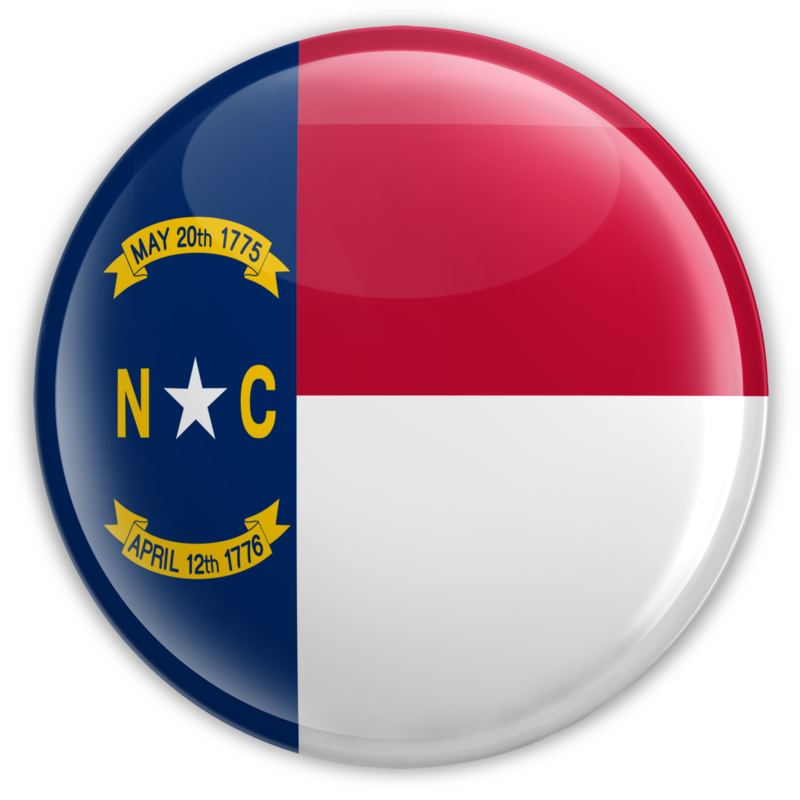 North Carolina Self Directed IRAs – A Guide to Retiring in North Carolina
North Carolina Self Directed IRAs – A Guide to Retiring in North Carolina
North Carolina has long been known as among the most beautiful states in the Union – and a frequent retirement destination for North Carolina Self Directed IRA owners and others from all over the country. They are attracted to the moderate weather and modest living expenses compared to the Northeast and northern states. There is certainly plenty of recreational activity throughout the state, from the lovely Appalachian and Smokey Mountains range to the coastline and beautiful beaches. Golf courses are plentiful throughout the state, and the bass fishing in North Carolina’s many pristine lakes is second to none.
Taxation
North Carolina recently became a much more attractive state for retirees and owners of North Carolina Self Directed IRAs thanks to a recent tax reform. State income taxes have been lowered to a flat rate of 5.8 percent for 2014, and will be lowered again to 5.75 percent in 2015. This is way down for those making over $60,000 per year, as the top 7.75 percent rate vanishes, as does the 7 percent rate that applied to all earnings over $12,250 under the prior system. For many people, this represents a state income tax break of 30 percent or more.
The state also recently lifted its standard deduction – from $3,000 to $7,500 for singles and from $6,000 to $15,000 for couples.
Social Security income is exempt from state taxation. However, income from IRA distributions, including from North Carolina Self Directed IRAs, is taxed as income in North Carolina.
The state estate tax has also recently been abolished – retroactive to January 1, 2013. There is no state inheritance tax. So not only is North Carolina a great place to live – it’s also not a bad place to die, if you’re going to be doing so anyway.
As for sales taxes, North Carolina currently assesses a rate of 4.75 percent. Counties and cities may add an additional tax, so depending on where you are, sales taxes could reach as high as 8.25 percent.
Housing
The median home price in North Carolina, according to the Zillow Home Value Index, is 147,200. The Index records a 2.9 percent increase in home prices over the last 12 months, and forecasts appreciation of 3.1 percent over the next year. The median list price per square foot is $105. House prices in North Carolina fell between 2008 and 2010, as they did nationwide, but they have nearly recovered to their pre-bubble peaks, though on a much sounder footing.
Broken out by city, we see a wide spread in home prices, with Cary, NC priced at $286,700, Raleigh at $188,500, and Wilmington at $167,000.
Winston-Salem homes are currently valued at a median price of $113,000, and the Army town of Fayetteville, right outside of Fort Bragg, has homes valued at an average of 109,700. All housing data is from Zillow.com, and is current as of October 10th, 2014.
Wealth and Asset Protection
Some states allow individuals in bankruptcy to select whether they want to have the state or federal exemptions apply to them. However, North Carolina requires you to use their own state exemptions.
This is an important consideration for retirees because in the event they are sued in a court of law and found liable for damages, creditors are able to seize certain assets to satisfy the judgment – but other assets are exempt. Here are some of the most relevant assets that North Carolina laws protect against the claims of creditors:
- $35,000 in home equity. But, if you are 65 or older and a spouse has died, you may be able to qualify for a higher exemption, depending on the form of title you own the house under. You can exempt a burial plot worth up to $35,000 in lieu of the homestead exemption.
- A car valued up to $3,500, provided you didn’t buy it within 90 days of filing for bankruptcy.
- Health aids, furnishings, books, animals, appliances, household items, crops, clothing and musical instruments up to $5,000 in value, plus an additional $1,000 per dependent (up to $4,000). This exemption only applies to items purchased at least 90 days before a bankruptcy filing.
- Tools of a trade up to $2,000.
- Up to $25,000 in Section 529 college savings plans.
- Workers compensation and unemployment benefits are exempt.
- Veterans benefits are exempt.
- North Carolina Self Directed IRAs and conventional IRAs enjoy unlimited protection under state law, which makes North Carolina a particularly attractive place for those with large self-directed retirement accounts to retire to.
- Tax-exempt retirement and pension plans, such as 401(k)s, 403(b)s, SEPs, profit-sharing plans, money-purchase plans, defined benefit plans and SIMPLE IRAs are exempt.
- Additionally, North Carolina grants a “wildcard” exemption of up to $5,000 of unused homestead or burial plot exemptions.
Image by: presentermedia.com
